Papers by Sue Carter Kahl

Journal of Public Affairs Education, 2021
ABSTRACT This case study describes the complex relationships between nonprofit boards of director... more ABSTRACT This case study describes the complex relationships between nonprofit boards of directors and executive directors, especially when the executive director is the organization’s founder. The case takes the perspective of an MPA student, with limited professional experience, who is asked to serve on a board of a new nonprofit. It is an exciting opportunity; however, the student soon is overwhelmed as issues begin to arise in working with the organization’s founder. There are tensions between some board members and the founder regarding board roles, and questions arise around whether the nonprofit can survive. Teaching notes guide educators to broach topics including, but not limited to, board roles and responsibilities, nonprofit incorporation, performance measurement, board and executive director relationships, fiscal responsibility, and diversity, equity, and inclusion.

Journal of Nonprofit Education and Leadership
This teaching case describes an executive search gone awry. A small nonprofit organization commit... more This teaching case describes an executive search gone awry. A small nonprofit organization committed to social justice set out to hire their first executive director and inad-vertently created a biased hiring process that resulted in a failed search. Through this case, students will learn to identify how resource constraints affect hiring decisions in small organizations, explain the importance of a comprehensive job development plan, develop and introduce a proposal to hire an organization’s first executive director, identify the microfoundations (i.e., individual-level behaviors) of biased hiring practices, and intervene effectively in unproductive or harmful board-level discussions. These learning objectives can be adapted to fit the objectives of courses in board governance, leadership, team dynamics, and human resource management. This case is appropriate for undergraduate and graduate students.

Housed within the Institute for Nonprofit Education and Research at the School of Leadership and ... more Housed within the Institute for Nonprofit Education and Research at the School of Leadership and Education Sciences at the University of San Diego, the Caster Family Center for Nonprofit and Philanthropic Research studies issues of strategic importance to the nonprofit sector, with the goal of identifying and advancing best practices in nonprofit research and evaluation metrics. The Caster Center offers resources and products that are grounded in systematic research and have direct applicability to the field. We work in collaboration, and under contract, with nonprofits and philanthropic organizations on a wide range of projects, including needs assessment, program evaluation, theory of change or logic model development, grantmaking impact reports, and board development. We regularly analyze funding, public policy, and environmental trends affecting the nonprofit sector, and publish data about public charities and foundations in California. The Caster Center also serves as an important training facility that enables doctoral students to engage in a variety of nonprofit sector research projects.
Journal of Public Affairs Education

Three years ago, I was introduced to the tradition of pilgrimage, and it became an apt metaphor f... more Three years ago, I was introduced to the tradition of pilgrimage, and it became an apt metaphor for the doctoral journey. In pilgrimage, the people with whom you travel are an essential component to how the path unfolds. I am grateful to those who have accompanied me along the way, both near and far. Mom and Dad, I am grateful to you for planting and cultivating the seeds of volunteerism in me and giving me the space to discover how they might bloom in my own life. Tim, I am thankful for your listening, coaching, editing, encouragement, love, and companionship throughout this journey and for giving me great reasons to step away from the path every now and again. You deserve an honorary degree. YRTB. Along the way, I was fortunate to have esteemed guides in the form of my dissertation committee. Their support throughout the dissertation process contributed to my growth within and beyond academia. Professor Bob Donmoyer, you welcomed me to my first doctoral class and so many others throughout the program. I am grateful for your appreciation of my practitioner experience and your recommendation letters that gave me access to new resources and learning opportunities. Your editing and advice made my research better. Mahalo! viii Professor Zachary Green, your classes and teaching introduced me to rich theories and practices that informed my learning, my work, and my Work. You helped me deepen and stretch my thinking and trust the uniqueness of my role and voice. The work continues. .. Professor Jeff Brudney, I have long admired your work, and it has been a privilege to learn from and with you. You helped me see how I might contribute to academia and better equipped me to do so. Our conversations helped fuel my enthusiasm for the possibilities within volunteerism research. No academic journey is undertaken alone. I have benefited from the professors, staff, students, and friends who have blazed a path before me and been companions along the way. Professors Terri Monroe and Lyn Osiek, I had never considered a trip to Israel before I saw the class you designed, and it turned out to be one of the best trips I have ever taken. I am grateful for your wayfinding, wisdom, and humor. Professor Cheryl Getz, your invitation to serve as a Teaching Assistant came at the perfect time. It was a gift to learn the language of Action Research and to be given the space to co-create with you and the class. It's been said that the way is made by walking, and Laura Deitrick, I am grateful that you encouraged me to pursue a PhD and gave me a chance to learn
Volunteer ENGAGEMENT 2.0: Ideas and insights changing the world, 2015

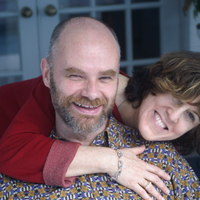

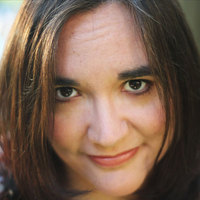
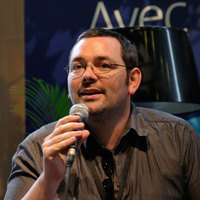
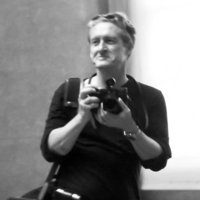
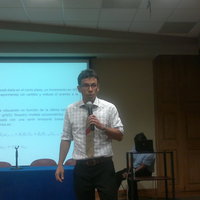



Uploads
Papers by Sue Carter Kahl